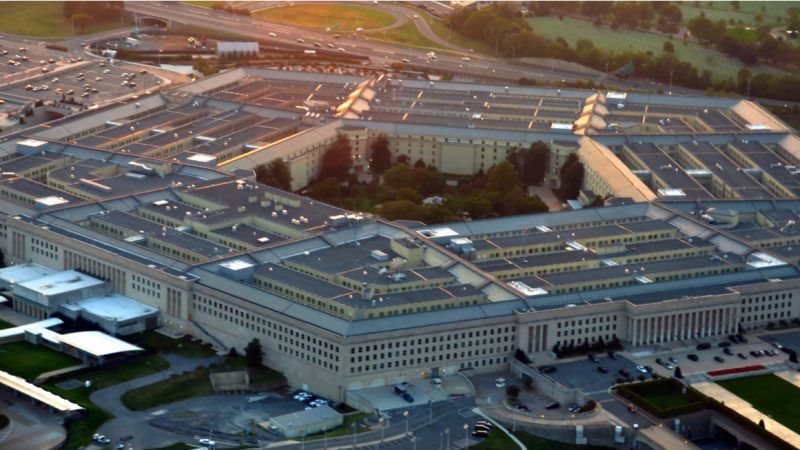America Can't Win Afghanistan's Civil War for Kabul
Washington's priority should be ending America's role in this fight.

The last week has seen two grim additions to the panoply of civilian suffering in Afghanistan's decades of war. First, a U.S. drone strike intended to take out forces of the Islamic State instead killed 30 pine nut farmers. Another 40 civilians were injured in the attack in Nangarhar province, where the farmers were resting after a long day of work.
Four days later, across the country in Helmand province, 40 innocents were killed and 18 wounded in a mistargeted attack by U.S.-supported Afghan special forces. The target was a Taliban hideout house, but most of the dead were women and children, local authorities reported, who were assembled for a wedding ceremony.
By the time this article is published, these 70 deaths won't even be the most recent additions to Afghanistan's spiking civilian casualty count for 2019, which by July had nearly caught up with the tally for all of 2018. Still, they illustrate an uncomfortable but increasingly inescapable reality: After 18 years of U.S. military intervention, Afghanistan is not growing more peaceful. Washington's meddling has utterly failed to end the country's civil war, which is not relevant to American security and predates U.S. involvement—if anything, as these two tragedies show, it's making matters worse for a population that has endured too much. It is long past time to abandon the pretense that military intervention has any plausible path to any metric of success. It is long past time for U.S. troops to come home.
There is a common assumption in Washington that the war in Afghanistan needs only a few tactical tweaks to succeed. Maybe you fiddle with the troop numbers a bit—If 15,000 isn't working, how about 100,000? If not 100,000, what about 15,000?—or get a new mission commander…18 times. Maybe you do more drone strikes, or fewer, or conduct them under more permissive rules of engagement. Maybe you focus on nation building, counterinsurgency, or "train, advise, and assist." Maybe you give the "mother of all bombs" a try.
But none of it succeeds, nor will it. "We are not losing [in Afghanistan] because of tactics or troop numbers but because of a catastrophic failure to define realistic war goals," Jarrett Blanc, formerly the United States' principal deputy special representative for Afghanistan and Pakistan, argues at The Washington Post. "After a messy but basically successful counterterrorism effort, we expanded our objectives in ways that were bound to fail. We mortgaged our counterterrorism objectives to more maximalist aims, making our original ambition harder to secure."
Obstinately maintaining those maximalist aims in the face of all evidence and basic prudence will not magically summon a different result than the present painful mix of stagnation and chaos. Tactical tweaks cannot fix a fundamentally, strategically flawed exercise in remaking a foreign society by force. Furthermore, as Blanc notes, "U.S. security requirements and national interests cannot begin to justify the human, strategic, and financial costs of a continued, large-scale U.S. military presence in Afghanistan." Withdrawal is overdue.
The common objection is a sort of "you broke it, you bought it" argument: American intervention is responsible for the state of Afghanistan today, so we must stay until Washington's various objectives—terrorism suppressed, stable governance achieved, women's rights protected, and so on—are accomplished. It would be reckless and unfair, so the thinking goes, to leave Afghanistan as we see it now.
The trouble with that approach—other than the fact that Afghanistan has been in a civil war for 40 years—is its demonstrably false assumption that any of these admirable goals can be achieved by U.S. military intervention. The reality is they cannot, as nearly two decades of fighting has more than shown. Try as it might, Washington cannot bomb Afghanistan into Western-style democracy. Nor can it end Afghanistan's civil war.
This is where a word of caution is needed regarding the U.S.-Taliban and intra-Afghan negotiations now underway. Afghanistan's troubles are ultimately political, and in that sense diplomacy—particularly among various Afghan parties—is invaluable. But predicating American exit on the realization of a comprehensive deal with the Taliban and Kabul guarantees that exit will never come. Though negotiations should certainly continue, ending America's role in this fight must be Washington's priority.
